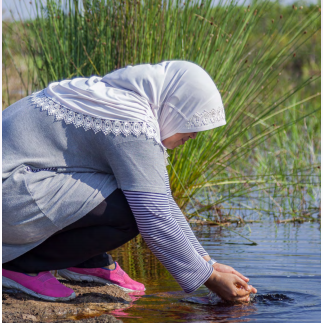Foreword

We will succeed by working together: reconnecting people and nature to implement effectively the 2015 Paris Agreement and its commitment to limit global warming, thereby securing a sustainable future for all. As always, the progress and the value of the Programme is based on the genuine partnership approach of all its member countries, donors, civil society and indigenous peoples who, through the work and commitment during the year, have made this progress possible.
Executive summary
This annual report presents the results of the UN-REDD Programme up to and including 2020. It builds on and continues a progressive series of technical, policy and knowledge achievements at the nexus between climate and forests since the Programme’s launch in 2008. UN-REDD partner countries are making ever-greater progress in preparing for and implementing efforts to reduce emissions from deforestation and forest degradation through the conservation, sustainable management of forests &
enhancement of forest carbon stocks.

Impact Stories
Progress towards REDD+ implementation

Despite the disruption that the COVID-19 crisis caused to national governance and international co-operation and technical assistance, including to UN-REDD, many UN-REDD partner countries made significant progress towards implementing REDD+ actions and mobilizing funding for them. The foundation established by UN-REDD technical assistance in preceding years was resistant to the COVID-19 crisis and adapted to it.
Contribution to the SDGs
UN-REDD contributes widely to achieving the SDGs, not only the more obvious goals on climate action (SDG 13) and sustainable forest management (SDG 15), but also more broadly across the whole spectrum of the SDGs.
The different national strategies and action plans, investment plans, NFMSs, deforestation-free commodity-chain partnerships and financial arrangements for the sustainable governance of lands and forests that countries develop, adopt and implement, with technical assistance and policy advice from UN-REDD, are allowing countries to address issues pertaining to the following topics.

Knowledge Management Results
Landscape approaches and planning
Forest tenure and the rights of indigenous peoples
Financing and the private sector
Forest monitoring systems and measurement,reporting and verification
Linking REDD+, the Paris Agreement, NDCs and SDGs
REDD+ funding mechanisms
Cross-cutting knowledge management and communications

Gender

Building on the progress made on gender in 2019, the UN-REDD Programme continued in 2020 to support 10 partner countries in integrating gender equality and women’s empowerment principles within REDD+ action.
In particular, this support has helped many partner countries to take large strides in incorporating gender into their safeguards-related work.
Financial Reporting
This chapter presents financial data and analysis of the UN-REDD Programme Fund using the pass-through funding modality as of 31 December 2020. Financial information for this Fund is also available on the MPTF Office GATEWAY.

Looking Ahead

Over 2020, and into 2021, the UNREDD Programme is pivoting and recalibrating its technical assistance and policy advisory services to catalyse that consensus at a global level and support its deployment across countries.
UN-REDD will continue operating at the vanguard of forest solutions, building on best practices and sharing them widely, as well as fostering innovation and replicating efforts at scale.










